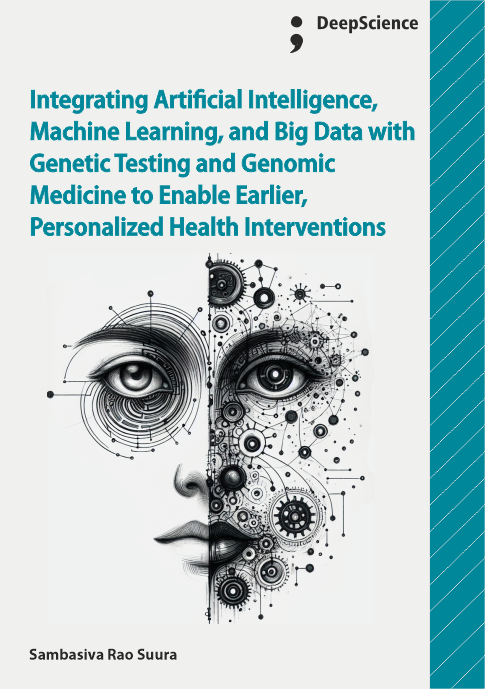Population-scale genomic initiatives: Harnessing artificial intelligence to understand heritability, risk factors, and intervention windows
Synopsis
As genetic research accelerates, the prominence of understanding heritability and its underlying risk factors grows rapidly. With the application of artificial intelligence (AI), population-scale genomic initiatives can be exploited to gain insights into genetic architectures and associated risk factors, paving the way to craft evidence-based public health strategies. These strategies, predominantly pharmacological and behavioral interventions, allow for the discerning of potential therapeutic or preventive intervention windows. On these grounds, a multidisciplinary framework combining genetics, data analysis, and public health is outlined to exemplify the potency of a risk-factor-aware approach in unveiling genetic insights and devising personalized public health strategies.
Enabling timely public health intervention is contingent upon the early identification of individuals at higher genetic susceptibility, demanding a delicate characterization of inherited risk factors probing diverse biological pathways. Heritability studies aim to delineate genetic underpinnings embedded in demographic structures; moreover, to fulfill this mission, a battery of genetic and phenotype data needs to be collected and analyzed consequently. Given the scaling issue with the analysis of big data in a complex non-heuristic space, the burgeoning sophistication of AI emerges as an imminent solution to facilitate modeling and analysis. However, the overall risk of a disease or trait is determined by a legion of genetic and environmental factors interacting in a dynamically stochastic fashion; hence, there is a pressing need to consider the effects of polygenic and risk-factor-mediated susceptibility conjointly in a parallel scalable approach for public health planning.
Against this backdrop, a population-scale genome initiative is highlighted, which undertakes a timely analysis on the most extensive genome-wide association study (GWAS) to unravel demographic structures across the entire trait spectrum. To articulate public health implications upon the identified genetic insights, a novel risk-factor-aware framework is postulated, and an analytic model is tailored to project cognitive functions by integrating distinct types of genetic and environmental risk factors into a coherent biological understanding. Substantive results across diverse health outcomes are presented to exhibit the potency in revealing clinical risk factors, discerning genetic insights, and crafting precision public health guidelines.













